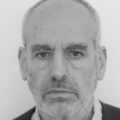10:30
- 11:30
REGISTRATION OPENS
11:30
- 11:45
OFFICIAL WELCOME
11:45
- 12:15
‘FROM A ‘NO, BECAUSE’ TO A ‘YES, IF’ CULTURE: HOW CAN OUR BUREAUCRACIES BE MORE CREATIVE?
Charles Landry is widely regarded as a global authority on the future of cities. He is credited for his attempt to rethink city making through his work on intercultural cities, the psychology of cities, creative bureaucracies and the measurement of creativity in cities – the latter developed with Bilbao and now assessed through in-depth studies of 25 cities. Previously Charles founded the think tank Comedia in 1978, which pioneered the connection between culture, creativity and city transformation.
Opening Global Cities After Dark 2019, Charles’ keynote explores the human perspective which are at the heart of our city’s systems. Bureaucracies are beginning to transform – with bureaucrats across the world attempting to rethink possibilities. The challenge is creating conditions for those working in the bureaucracy that allows people to express their values and trigger their desire to contribute. His keynote highlights how bureaucracies created solely in pursuit of efficiency are extraordinarily wasteful of human effort and talent, and why creative bureaucracies engages people so that they extend their potential and build their energy.
International authority on the use of imagination and creativity in urban change
Charles Landry is an international authority on the use of imagination and creativity in urban change. He is currently a fellow at the Robert Bosch Academy in Berlin. He invented the concept of the Creative City in the late 1980’s. Its focus is how cities can create the enabling conditions for people and organizations to think, plan and act with imagination to solve problems and develop opportunities. The notion has become a global movement and changed the way cities thought about their capabilities and resources.
Charles helps cities identify and make the most of their potential by triggering their inventiveness and thinking and by opening up new conversations about their future. His aim is to help cities become more resilient, self-sustaining and to punch above their weight.
Acting as a critical friend he works closely with decision makers and local leaders in the short and longer term.. He stimulates, facilitates and inspires so cities can transform for the better. He helps find apt and original solutions to seemingly intractable dilemmas, such as marrying, social creativity, innovation and tradition, or balancing wealth creation and social cohesiveness, or local distinctiveness and a global orientation. His overall aim is to help cities get onto the global radar screen.
Charles facilitates complex urban change and visioning processes and undertakes tailored research often creating his own projects. These include the Urban Psyche test developed with Chris Murray and the ‘Creative City Index’ in collaboration with Bilbao and developed with Jonathan Hyams. It is a strategic tool that measures, evaluates and assesses the innovative eco-system of a city and its capacity to adapt to radical global shifts and adjustments. So far 23 cities have taken part from Helsinki to Adelaide, Krakow toTaipei, Mannheim and Plymouth.
His latest major project is the picture driven ‘The Civic City in a Nomadic World’. It brings together his work over the last decade including the concept of ‘civic urbanity’, the ‘creative bureaucracy’ and ‘the management of fragility’. Publication date late 2017.
Charles was born in 1948 and studied in Britain, Germany and Italy. In 1978 he founded Comedia, a highly respected globally oriented advisor that assesses deep trends, creative potential, culture and urban change. He has completed several hundred assignments for many public and private interests and given key note addresses and workshops in 65 countries across the continents including: Britain, Australia, Germany, Finland, Spain, Italy, Portugal, Brazil, Argentina, the Netherlands, China, Japan, Korea, Cambodia, India, the UAE, Qatar, Albania, Croatia, Hong Kong, New Zealand, Poland, Russia, South Africa, Sweden, Taiwan, Ukraine, South Africa, Ecuador, Canada, the USA and Yemen.
His many books include most recently a series of short, illustrated books, including: The Creative Bureaucracy (September 2017), Psychology & the City with Chris Murray; The Digitized City; Cities of Ambition; The Fragile City & the Risk Nexus with Tom Burke; The Sensory Landscape of Cities; The Origins and Futures of the Creative City and Culture & Commerce. He is best known for The Creative City: A toolkit for Urban Innovators (2000); The Art of City Making (2006); and The Intercultural City: Planning for Diversity Advantage with Phil Wood.
Charles Landry
International authority on the use of imagination and creativity in urban change
12:15
- 12:45
KEYNOTE: BEN VAN HOUTEN (San Francisco) Planning for Creativity – Policies to protect San Fran’s $6 billion nightlife
San Francisco’s Business Development Manager for the Nightlife and Entertainment Sector Ben Van Houten has achieved a lot in the time since this role was created in 2013. He’s managed a groundbreaking regional initiative to improve all-night transportation; developed legislation to create San Francisco’s first new full liquor licenses in over 70 years and he’s fostered compatibility between entertainment venues and residential developments including the passing of the ‘agent of change’ law in 2015 and the introduction of ’Good Neighbour Policy’. Despite these huge achievements, San Fran is still one of the least affordable cities in America and managing affordable space for residents and creatives is a huge challenge of the city.
In the opening keynote, Ben outlines how San Fran is tackling sound restrictions, affordable housing and creative space challenges. His keynote delivers learnings from the city’s journey in creating more harmony between nightlife businesses and residents; the crucial steps which led to the passing of legislation that supports the city’s nightlife, and what lies ahead to address San Fran’s housing and creative space crisis.
Business Development Manager, Nightlife & Entertainment Sector - San Francisco Office of Economic and Workforce Development
In 2013, Ben Van Houten became San Francisco’s first Business Development Manager for the Nightlife & Entertainment Sector, a position created after an economic impact study identified the $6 billion generated annually by San Francisco’s nightlife and entertainment industry. Ben is involved in a wide range of business assistance and policy efforts to support the industry and its 62,000 employees, with accomplishments including: managing a groundbreaking regional initiative to improve all-night transportation; developing legislation to create San Francisco’s first new full liquor licenses in over 70 years; working to foster compatibility between entertainment venues and residential developments; and leading capacity-building efforts to support the local music industry.
Ben Van Houten
Business Development Manager, Nightlife & Entertainment Sector - San Francisco Office of Economic and Workforce Development
12:45
- 13:30
GROUP WORKSHOP: POST LOCKOUT PLAN FOR SYDNEY
With strong indications that 2020 will herald a repeal of the lockout laws, this group workshop focuses on how local businesses and communities can build and retain a diverse, safe, inclusive and thriving nightlife in Sydney.
Separated into three groups, all forum attendees will participate looking at different timelines which will investigate and prompt ideas for different stages of Sydney’s nightlife rebuild. Each group will explore different themes from different timelines:
1 year – Kerri Glasscock and John Green guide this group looking at the immediate future and how Sydney can reactivate in the first twelve months post lockout. This group also focuses on understanding the new licensing landscape and building positive relationships with Police and Liquor Licensing. Blake Wright from The Urban List will facilitate the participants to answer the questions and define the key action points from this group.
5 years – This group investigates the question ‘what can Sydney achieve within five years?’ San Fran’s Ben Van Houten lends his international voice to this group along with Art Pharmacy’s Emilya Colliver, James Winter from Brand X and Night Time Industry Association’s Michael Rodrigues. This group will focus on creating a diverse night time offering, leveraging later trading retail, more small scale cultural activities, new transport infrastructure, accepted standards of behaviour and ideas on marketing our diverse offering globally.
10 years – This group focuses on the long term outcomes that need to be defined from the outset of the lockouts repeal. LeftBank Co’s Hahna Busch and Property Council’s Will Power will guide this group on actions to achieve an equitable, diverse and affordable nightlife, and enabling the delivery of much needed cultural infrastructure in our City. The group will also touch on what can be done to increase investment in the City’s streetscape and public domain as another area for nightlife.
At the end of the day, a summary of the actions will be reported back to participants as part of the closing remarks.
Account Manager, Urbanlist
Blake is an advertising and communications specialist working with Australian and International Brands and hospitality groups to develop campaigns to engage young people. The campaigns are designed to inspire, inform or recommend ultimately driving a particular action or result and help young people to live their best lives, in their city.
Currently working at the independent publisher, Urban List, the Home of Urban Culture, in Sydney with experience across the QLD + WA markets and formerly of Nova Radio and Pedestrian Group.
Blake Wright
Account Manager, Urbanlist
Director, Art Pharmacy and Culture Scouts
Emilya Colliver is Founder and Director of Art Pharmacy Consulting, offering strategic art and culture consulting services to a wide range of private and public sector clients. She is also the director of Culture Scouts walking tours, which curates walking tours through Sydney’s cultural hubs for visitors and curious locals. Emilya is a member of City of Sydney’s Nighttime Economy Panel, looking at rebuilding the nighttime economy in Sydney, and she curates Art Pharmacy, an online gallery that represents Australian artists. In November 2019, she was announced the winner of the Business News Australia Young Entrepreneur Award in the Art and Culture category.
Emilya Colliver
Director, Art Pharmacy and Culture Scouts
Cultural Strategist, Left Bank Co
Hahna Busch
Cultural Strategist, Left Bank Co
Director, Brand X
James is the co-founder of Brand X; a non-profit arts organisation that partners with property developers and local governments to re-purpose underutilised space into cultural assets. Since 2005 he has worked on 17 property projects and consulted for the private and public sectors on cultural infrastructure and placemaking. He currently sits on the board of Darlinghurst Business Partnership, the Nightlife and Creative Sector Advisory Panel for the City of Sydney and the Inner West Arts and Culture Advisory Committee.
James Winter
Director, Brand X
Director, Australian Hotels Association NSW
John is a member of the City of Sydney Nightlife and Creative Sector Panel.
As Director of Liquor & Policing with AHA NSW, his responsibilities include stakeholder and membership engagement, advocacy and the development of evidence based responses on issues impacting the hotel industry. He represents AHA NSW and industry on government committees/ working groups dealing with liquor accords, licensing, training, armed robberies and counter terrorism. He is the association’s media spokesperson.
John was previously with the NSW Police Force responsible for the organisational response to alcohol related crime. His 26 year career comprised uniform policing in Sydney’s eastern/southern suburbs, then specialist /leadership roles in areas such as Dog Squad, Tactical Response Group, Olympic Security, Local Area Commands, emergency/aviation security, counter terrorism and crisis management.
John Green
Director, Australian Hotels Association NSW
City of Sydney Nightlife and Creative Sector and Advisory Panel co-chair and CEO, Sydney Fringe
In 2004 Kerri co-founded the now legendary underground performance space 505 in Sydney alongside bassist Cameron Undy. Created as a performance focused space for musicians and theatre makers. 14 years on under her co-direction 505 has grown from a one night a week underground venue to 2 full time professional performance spaces presenting 6 nights per week of local, interstate and international acts at Venue 505 in Surry Hills and a full time Independent theatre program at Old 505 Theatre in Newtown.
505 presents over 320 productions/events a year and remains entirely self-funded and artist run. 505 has been included in a number of ‘best of lists’ and won a number of awards including:
-Top 150 Jazz Clubs in the world by Downbeat magazine (U.S.A) 2018, 2017, 2016, 2015, 2014, 2013
-Winner Legends Award- Time Out Bar Awards 2017
-Listed as ‘a must visit spot’ in the 2013 Lonely Planet guide to Sydney
-Best Jazz Venue- Alternative Media best of Sydney Awards 2014, 2013
-Best Independent Theatre- Alternative Media best of Sydney Awards 2018, 2017, 2016
Beyond the walls of 505 Kerri Glasscock has worked in various roles in the Sydney arts scene and and has contributed to:
2018: Co-Chair City of Sydney Night Time Advisory Group
Currently: Director- City Recital Hall
2017: Sydney a 24 Hour City- The Committee for Sydney
2014: Off Broadway Plan- Inner West Council
2013: Live Music & Performance Action Plan-City of Sydney
Kerri Glasscock
City of Sydney Nightlife and Creative Sector and Advisory Panel co-chair and CEO, Sydney Fringe
Managing Director/Chair, Time Out Australia/Night Time Industries Association
Mike believes in the inspirational power of cities and spends a good amount of time encouraging anyone in his orbit to get out of the house, to know their city and to have more fun. While working as a lawyer in the Middle East, he spotted an opportunity to launch global lifestyle brand Time Out in Sydney in 2007 to achieve these aims.
In 12 years at the helm of Time Out Australia he has grown the brand across print, digital, event and social channels, which now reaches 1,000,000 Australians monthly.
In recent times, and prompted by the challenges facing Sydney’s night time economy, he has focussed his efforts on aligning and empowering industry to actively engage in the political process in order to effect change. This saw him take a leading role in launching an independent bars association for Sydney in May 2018, followed by the launch of a Night Time Industries Association (NTIA) in November 2018 which he now chairs. The NTIA’s membership spans arts, culture, entertainment and hospitality, and he is actively involved in the current public inquiry into regulations affecting the night time economy in the state of New South Wales.
Mike was also recently appointed to the University of New South Wales’ Art & Design Advisory Council and is the co-host of leading hospitality podcast Back of House.
Michael Rodrigues
Managing Director/Chair, Time Out Australia/Night Time Industries Association
Urban Strategist, Lendlease
Penelope Layton has been with Lendlease for 5 years with various roles related to design and place curation both locally and nationally. Penn works across origination and conversion projects. Penn’s current and recently appointed role as Urban Strategist for QLD directs creative inputs across urban strategy, strategic masterplan design and place design quality for our Urban Regeneration projects. This includes embedding ways of working and practices in respect to the places we create.
Penelope Layton
Urban Strategist, Lendlease
NSW Deputy Executive Director, Property Council
William Power
NSW Deputy Executive Director, Property Council
13:45
- 14:45
HYPOTHETICAL: DRUGS, JUST SAY KNOW
Following a 2018/2019 summer season which resulted in six drug-related deaths of festival patrons, Australia has not only tragically lost the lives of young music lovers, but has also found itself in a political stand-off in how best to approach drug education and harm minimisation.
Young people’s hunger for the music festival experience is not waning and in addressing health and safety at festivals, the NSW Government introduced a new festival licensing scheme focussing on 14 determined “higher risk” festivals. But the question remains – is this the approach that will ensure the safety of our young music lovers? While media, politicians, festival fans and stakeholders debate on pill testing as a possible solution, another hot summer festival season is just around the corner.
n this Hypothetical: ‘Drugs, Just Say Know’, health experts, police, festival figures, drug researchers, and parents are brought together to share and negotiate different perspectives and influence ways to move forward to address this important issue. We take this group through a hypothetical exercise to collectively work through a moral dilemma, to aid in navigating this challenge in the future.
Hypothetical: A Moral Dilemma at Global Cities After Dark is created by Helen Marcou AM, (Bakehouse Studios) Jessie French, ethicist Dr Emma Rush, (Charles Sturt University) and Dr Catherine Strong. (RMIT)
Managing Director - Fuzzy Operations & Board Member and Spokesperson - Australian Festivals Association
Managing Director: Fuzzy Operations
Event Director: Listen Out, Field Day, Harbourlife, Curve Ball
Board Member and Spokesperson: Australian Festivals Association
Adelle has been running music festivals for over 20 years. Field Day, Harbourlife, Parklife and its current iteration Listen Out are some of the most prestigious and largest festivals in Australia. As the head of operations for Fuzzy events Adelle has been at the forefront of stakeholder liaison, safety planning and instrumental in the company’s harm minimization initiatives that now form a key part of the NSW Health Guidelines around music festivals.
Since the formation of the Australian Festival Association Adelle has played lead on government negotiations for the industry and been key spokesperson rallying against the rushed music festival regulation in NSW.
Adelle believes co-operation and consultation with the industry is the key to raising the bar for best practice around music festival management and harm min practices.
Adelle Robinson
Managing Director - Fuzzy Operations & Board Member and Spokesperson - Australian Festivals Association
Associate Professor Flinders University, Visiting Fellow National Drug and Alcohol Research Centre, Vice-President International Society for the Study of Drug Policy - Flinders University
Caitlin is an Associate Professor in criminology and drug policy and Matthew Flinders Fellow at the Centre for Crime Policy and Research, Flinders University, Vice-President for the International Society for the Study of Drug Policy and Visiting Fellow, National Drug and Alcohol Research Centre, UNSW. Caitlin has spent 17 years researching drug policy, including the last 12.5 years working at the National Drug and Alcohol Research Centre, working as part of the Drug Policy Modelling Program – one of the leading drug policy research centres in the world. Her research seeks to advance Australian and international drug policy by improving the evidence-base into the effects of different legislative and law enforcement approaches to drug use and supply and working directly with policy makers. She has spent the last five years examining issues of festival safety, including the incidence and nature of drug use and supply and impacts of different methods of policing. She gave evidence for the 2018 NSW Government Festival Safety Inquiry, the 2019 NSW Coronial Inquest into drug-related deaths at festivals and the 2019 NSW Special Commission of Inquiry into the Drug Ice.
A/Prof Caitlin Hughes
Associate Professor Flinders University, Visiting Fellow National Drug and Alcohol Research Centre, Vice-President International Society for the Study of Drug Policy - Flinders University
President, Australia Drug Law Reform Foundation
Dr Alex Wodak, a retired physician, is the President of the Australian Drug Law Reform Foundation. He was the Director of the Alcohol and Drug Service at St Vincen’ts Hospital from 1982 to 2012. Together with colleagues he established Australia’s first needle syringe program in 1986 and Australia’s first Medically Supervised Injecting Centre in 1999 when both were pre-legal. Dr Wodak and colleagues also established the National Drug and Alcohol Research Centre. He has often worked in low and middle income countries.
Dr Alex Wodak
President, Australia Drug Law Reform Foundation
Founder and Executive Director, Unharm and The Loop Safety Testing
Dr Will Tregoning is a founder and Executive Director of Unharm, a grassroots organisation campaigning for policies that promote wellbeing and make drug use safer. He is also a founder of The Loop Australia, a non-profit organisation established to provide ‘pill testing’ services in Australia. Prior to Unharm, Will did program evaluation, social policy research and communications consultancy for Australian government departments and agencies. His personal and professional experience made him aware of the harms of current drug policy and the need for new approaches.
Dr Will Tregoning
Founder and Executive Director, Unharm and The Loop Safety Testing
Research Director - Drug Free Australia
Gary Christian is Research Director for Drug Free Australia – a peak body representing organisations and individuals who promote and advocate for a healthy, drug free lifestyle for everyday Australians. As a community voice, Drug Free Australia engages with families and young people via newsletters, community forums and the media.
Previous to his role at Drug Free Australia, Gary has been Director of National Program, ADRA Australia; President of Hassela Australia – Drug Rehab Centre; and an Australian Representative to the United Nations General Assembly Special Session (Vienna) – International Drug Conventions,
Gary holds a BA in Theology and a MA in Philosophy.
Gary Christian
Research Director - Drug Free Australia
Senior Prevention Worker - Jellinek
Judith Noijen is a senior staff member of the prevention department of Jellinek in Amsterdam. Jellinek Prevention responds to developments in the field of alcohol and drug-related issues, education, policy and research.
Since 2005 Judith’s focus has been on promoting the role of health, education and science-based policy and interventions in preventing nightlife related risks. She has done so through research, drug checking, staff training and managing a specific nightlife outreach program: ‘Unity’ which has been operating in the Dutch Dance scene since 1996.
By implementing the Celebrate Safe platform and campaign on a national level through public-private cooperation, a strong network has been set up. Within this network, community projects focusing on safer and healthy nightlife, event medical services, event security companies, clubs, music venues, event organisers, local and regional authorities and scientists work together to create a safer and healthy nightlife in the Netherlands.
Judith co-curated the 11th edition of the international Club Health conference on Nightlife, Substance Use and related health issues. The conference that took place in Amsterdam, May 2019, brought together a range of experts from 25 countries on protecting and promoting health in nightlife settings.
As a board member of the European Nightlife Empowerment & Wellbeing Network (NEW Net), she’s working, in close collaboration with safer nightlife stakeholders on improving nightlife empowerment and wellbeing on a European level.
Judith Noijen
Senior Prevention Worker - Jellinek
Head of General Licensing, PPCA
Justine is an experienced leader with over 20 years’ experience in the hospitality industry. With a career spanning front of house, venue management and executive roles, she has a proven ability to innovate and break down complex problems in the consumer retail space to create strategies that drive evolution and ongoing business success.
As CEO of one of Australia’s largest hospitality groups, Justine is known for strategic leadership, guest first approach and driving innovation through technology and product development.
Justine is passionate about future-proofing Sydney’s night time economy, creating a destination for arts, cultural and entertainment that supports youth culture, late night retail and business.
Karla Skarda
Head of General Licensing, PPCA
CEO - NSW Users and AIDS Association
Mary Ellen Harrod is the CEO of the NSW Users and AIDS Association (NUAA) and brought the well-established Harm Reduction Victoria DanceWize model to NSW in November 2017. DanceWize NSW – like all NUAA programs – has a focus on harm reduction, community development and empowerment while pushing back against the flawed model of prohibition and working to support the health, human rights and dignity of people who use drugs.
Mary Harrod
CEO - NSW Users and AIDS Association
Director, Dragon Dreaming Festival
Shane Russell
Director, Dragon Dreaming Festival
14:45
- 15:15
AFTERNOON TEA
15:15
- 15:45
KEYNOTE: JUDITH NOIJEN (Amsterdam) Balancing Risk and Pleasure
For thirteen years Judith Noijen has been at the frontline of harm reduction in nightlife settings. At Jellinek, Judith has tirelessly promoted the role of health, education and science based policy and interventions in preventing nightlife related risks. Her remit includes managing the nightlife outreach program: ‘Unity’ and the management of the ‘Celebrate Safe’ platform which is a private and public network of event medical services, event security companies, clubs, music venues, event organisers, local and regional authorities and scientists working together to create a safer and healthy nightlife in the Netherlands.
In May 2019, Judith co curated the 11th edition of the Club Health Conference in Amsterdam which brought together experts from over 25 countries discussing nightlife, substance use and protecting and promoting health in nightlife settings. In Balancing Risk and Pleasure, Judith presents the findings from this conference, outlining the legacies and emerging trends in this field. The keynote will cover how the approaches differ between decades and countries – and at a domestic level, how these findings may be applied to local solutions.
Senior Prevention Worker - Jellinek
Judith Noijen is a senior staff member of the prevention department of Jellinek in Amsterdam. Jellinek Prevention responds to developments in the field of alcohol and drug-related issues, education, policy and research.
Since 2005 Judith’s focus has been on promoting the role of health, education and science-based policy and interventions in preventing nightlife related risks. She has done so through research, drug checking, staff training and managing a specific nightlife outreach program: ‘Unity’ which has been operating in the Dutch Dance scene since 1996.
By implementing the Celebrate Safe platform and campaign on a national level through public-private cooperation, a strong network has been set up. Within this network, community projects focusing on safer and healthy nightlife, event medical services, event security companies, clubs, music venues, event organisers, local and regional authorities and scientists work together to create a safer and healthy nightlife in the Netherlands.
Judith co-curated the 11th edition of the international Club Health conference on Nightlife, Substance Use and related health issues. The conference that took place in Amsterdam, May 2019, brought together a range of experts from 25 countries on protecting and promoting health in nightlife settings.
As a board member of the European Nightlife Empowerment & Wellbeing Network (NEW Net), she’s working, in close collaboration with safer nightlife stakeholders on improving nightlife empowerment and wellbeing on a European level.
Judith Noijen
Senior Prevention Worker - Jellinek
15:45
- 16:15
KEYNOTE: HOUSE OF YES – From DIY to WTF
Most that step into House of Yes claim it’s like stepping into another world. An adult playground oozing with creativity, a night out at HOY involves transformative themed parties, neoburlesque performers, gender-bending clowns, drag queens, DJs of all flavors, and even a hot tub on the roof.
Going from an illegal, underground DIY community space to a legal venue over the course of 10 years, House of Yes internationally renowned as a magical theatre meets nightclub. Voted by Time Out in 2018 as the #2 Best Thing To Do In The World, House of Yes is also a powerful global brand known for elevating the culture of nightlife and pioneering several ‘safer spaces’ initiatives – most notably their Consent Program – that make their events more inclusive and fun for all.
In their keynote, House of Yes’ Co-Founder and Creative Director Kae Burke, along with Cultural Director and Manager of the Consent Program Jacqui Rabkin, take us through their journey in building authentic creativity in a global city that is not without its challenges. Join us as we dive deep into what has been in their secret recipe for going from a good business to a great business that has so much meaning in the community, and how they have combined different artistic mediums to tackle big ideas and big issues. From DIY to WTF will provide an inspiration to the local creative industries, encouraging new ways to look at approaching our businesses differently. Key learnings will be innovative ways to grow businesses from grassroots movements to businesses that are recognised nationally and internationally, and that provide enduring value to the local community.
Co Founder/Creative Director, House of Yes
Kae Burke is a co-founder and creative director of House of Yes, a theatre infused nightclub and creative collective based in Brooklyn. Since 2008, Kae has been dedicated her life to developing collaborative projects, creative spaces, and events that bring together audiences and artists of every genre through performance and nightlife. She has been featured in Forbes, The New Yorker, Culture Trip, Cosmopolitan and the New York Times and recognized for her work with House of Yes in holding the culture of nightlife to a higher standard with a commitment to consent culture, community inclusivity, fostering self-expression and nurturing emerging talent.
Recently named the #2 Best Thing To Do in the World by Time Out New York, House of Yes has been expanding outside of its Brooklyn home to places and projects such as 29 Rooms in Los Angeles, Bonnaroo Music Festival in Tennessee, Life is Beautiful festival in Las Vegas, Envision Festival in Costa Rica, Art Basel in Miami, Tales of the Cocktail in New Orleans and Blunderland Variety Show in London. Most recently, House of Yes has collaborated with Ian Schrager as the creative developers of Paradise Club at the Times Square Edition in New York City.
Kae Burke
Co Founder/Creative Director, House of Yes
Marketing & Cultural Director - House of Yes
Jacqui Rabkin is the Marketing and Cultural Director at House of Yes, a theatre infused nightclub and creative collective based in Brooklyn, NYC. Before working for House of Yes, Jacqui was a behavioral neuroscientist with a secret love for the underground music & arts scene. She made the switch to full time nightlife in 2016 and never looked back. Since joining the House of Yes team she has pioneered the creation of a nationally-recognized Consent Program and has been featured on NPR, BBC, The New Yorker, NBC, Vice Media, and more. Jacqui is passionate about creating inclusive, safer spaces in nightlife and fostering community-driven approaches to nightlife development.
Jacqui Rabkin
Marketing & Cultural Director - House of Yes
16:15
- 17:45
BREAKOUT SESSION: ORGANISED CHAOS
This is a fast-paced and mentally challenging breakout session designed to create a paradigm shift. The Global Cities After Dark attendees are curated into teams of 4 to workshop solutions to challenges that are either being experienced right now or will pose a potential challenge in Sydney’s nightlife in the future. These challenges have been created following consultation with nightlife stakeholders, grass-roots communities, creatives and artists, government and peak bodies. Multiple teams will be assigned to each challenge to come up without of the box solutions to these real-life problems. We create a space to experiment with fresh ideas by hosting this organised chaos.
Following these breakouts, the team’s ideas will be presented in the theatre with a live poll to crowdsource which are the most unique, radical and strongest potential solutions. There are even some prizes for the winning solutions!
Challenges:
Critical mass: It’s a lockout-free Sydney – and the city has the freedom to rebuild Sydney’s nightlife without strict limitations. Over the past five years, the DIY/warehouse scene has risen and new in-home services such as Netflix and Uber Eats make a night-in at home much more appealing than it was five years ago. How do we harness the abundance of creativity in the DIY / warehouse and have it co-exist in licensed premises scene so it can re-engage young people and re-ignite their passion for regularly supporting Sydney’s nightlife?Challenge leader: Kiran Da Silva
Mobility: It’s 2021 and New South Wales is considering all-night public transport to increase mobility between Western Sydney and between the various inner-city nightlife precincts in Sydney. Safety as always is a concern with late night revellers – so what are the ways we can influence safety on public transport in the wee hours?
Challenge leader: Ben Van Houten
Intersectional nightlife offering: To truly create an inclusive and accessible nightlife offering it’s imperative we interrogate nightlife with an intersectional lens. While there is a small percentage of stakeholders within the Sydney nightlife economy who centre diversity and marginalised communities within their offerings, experiences of nightlife by marginalised peoples (First Nations, People of colour, LGBTQIA+, people with disabilities, people from lower socioeconomic backgrounds) in more mainstream spaces are still fraught with discrimination. How do we work collaboratively to decolonise nightlife and create actions that drive equity and intersectionality?
Challenge leader: Ayebatonye Abrakasa
The $ound of Mu$ic: We aim to have our nightlife thriving with good operators who run compliant businesses but the costs to do so over the last five years have significantly escalated and will continue to do so. How do we manage the expenses attached to regulation, compliance and music licenses without it being at the expense of creativity?
Challenge leader: Karla Skarda, PPCA
It’s not noise, it’s music: With increasing gentrification and urbanisation the matter of residents moving into city areas yet complaining about sound will be an even greater challenge in the future. What can be done to create harmony between residents and music venues?
Challenge leader: Mark Gerber
Redefining Culture: Good nightlife culture includes a variety of businesses working holistically to support each other. How do we create a more cohesive nightlife experience across the spectrum of retail, dining, bars, public spaces, cultural places and institutions, galleries, venues and nightclubs?
Challenge leader: Daria Grove
Safe from harm: Alcohol and drug-related incidents are the biggest levers of the restrictive regulation Sydney has experienced since 2014. Beyond pill testing, zero-tolerance and lockout laws, what are the patron focussed approaches we can adopt to influence personal accountability and promote safety for those in our nightlife?
Challenge leader: Judith Noijen
Mitigating Risk: Risk management is crucial to nightlife, but so is fun and freedom for magic to happen. How do we define risk in the night-time economy in 2019 and beyond, and mitigate it in a way that supports both safety and a flourishing nightlife?
Challenge leader: Libby Harris
Access and inclusion: Rightly so, there is a huge focus on accessibility and inclusion: Rightly so, there is a huge focus on accessibility and inclusion with many organisations championing initiatives and programs to increase the participation of people with disability or those with access requirements are included in the cultural offering and night time economy. If a business doesn’t have the funding to embark on accessibility training and workshops, what are the processes and ways to ensure people with disability are welcomed and can enjoy their cultural offering? Challenge leader: Liz Martin, Accessible Arts
Good operators: Liquor licensing schemes are set to change to a more nuanced approach which offers flexibility in trading and license terms for “good operators”. How would we go about defining a good operator from a not so good one, and what would the differences in licensing restrictions between different types of licensed venues look like?
Challenge leader: Justine Baker, Solotel Group
Founder/Creative Director - House of Ayebatonye presents
Ayebatonye Abrakasa is a Sydney- based Event Producer/DJ/Writer/Podcaster/Presenter/curator and community organiser.
Her prowess behind the decks has seen her play at some of Australia’s best festivals, events, parties and arts institutions alongside some of the world’s finest selectors. Some noteworthy mentions include Secret Garden Festival, Lost Paradise, Yours and Owls Festival, Art Gallery of NSW, Museum of Contemporary Art, House of Mince, A Club Called Rhonda and The Sydney Opera House.
When she’s not playing fun tunes to packed rooms, she’s providing sage social commentary through her online platforms and her podcast Don’t @ Me on FBI Radio where she has interviewed internationally acclaimed guests including Dr Robin Di Angelo, Aiyshat Akanbi and has moderated panels with guests such as Nakhane and Wesley Enoch.
As an events producer and Creative Director, Ayebatonye hosts inclusive and immersive large scale events under her company “House Of Ayebatonye ” and is the brainchild behind the newly established Irregular Fit , a collaborative interdisciplinary arts platform, led by Indigenous, Bla(c)k and POC (persons of colour) artists + collectives working towards creating a more equitable and sustainable future for marginalised folk in arts and cultural industries launching officially in September.
Ayebatonye also hosts a radio show of the same name on Nomad Radio, where listeners can expect a two hour auditory journey that reconciles the many facets of her musical identity exploring Afro rhythms from all over the continent, jazz, experimental and electronic sounds.
Ayebatonye sits on the Board of Directors for the Red Rattler Theatre, MusicNSW Levels Programming Committee and the FBI Diversity and Inclusion Committee. Outside of her work within the arts and cultural industries Ayebatonye undertakes community engagement, anti- discrimination and anti racism work as a public servant. A true champion for the diversification of Australia’s cultural landscape, Ayebatonye frequently contributes her knowledge and experience on social issues within Australia’s music community and is driven to create more opportunities for people from marginalised backgrounds.
Ayebatonye Abrakasa
Founder/Creative Director - House of Ayebatonye presents
Business Development Manager, Nightlife & Entertainment Sector - San Francisco Office of Economic and Workforce Development
In 2013, Ben Van Houten became San Francisco’s first Business Development Manager for the Nightlife & Entertainment Sector, a position created after an economic impact study identified the $6 billion generated annually by San Francisco’s nightlife and entertainment industry. Ben is involved in a wide range of business assistance and policy efforts to support the industry and its 62,000 employees, with accomplishments including: managing a groundbreaking regional initiative to improve all-night transportation; developing legislation to create San Francisco’s first new full liquor licenses in over 70 years; working to foster compatibility between entertainment venues and residential developments; and leading capacity-building efforts to support the local music industry.
Ben Van Houten
Business Development Manager, Nightlife & Entertainment Sector - San Francisco Office of Economic and Workforce Development
Media and Communications Manager - Kensington Street
Daria Grove is the Communications Manager of Kensington Street, Chippendale, an eclectic food and lifestyle precinct including twelve restaurants, six bars, a boutique hotel and hawker institution Spice Alley.
Passionate about facilitating the arts and creating a high level of cultural and community engagement, Daria has been the driving force behind several local and international cultural partnerships, exhibitions and festivals including Fringe Festival, OBEY, Singapore Inside Out and the annual Chinese New Year celebrations.
Since joining Kensington Street in 2016, Daria has worked seamlessly with internal and external stakeholders to create a thriving, profitable business and village community, despite Sydney’s restrictive night time environment.
Daria has a strong background in film, events and corporate communications – the perfect mix to bring the Kensington Street precinct and it’s true potential to life!
Daria Grove
Media and Communications Manager - Kensington Street
Senior Prevention Worker - Jellinek
Judith Noijen is a senior staff member of the prevention department of Jellinek in Amsterdam. Jellinek Prevention responds to developments in the field of alcohol and drug-related issues, education, policy and research.
Since 2005 Judith’s focus has been on promoting the role of health, education and science-based policy and interventions in preventing nightlife related risks. She has done so through research, drug checking, staff training and managing a specific nightlife outreach program: ‘Unity’ which has been operating in the Dutch Dance scene since 1996.
By implementing the Celebrate Safe platform and campaign on a national level through public-private cooperation, a strong network has been set up. Within this network, community projects focusing on safer and healthy nightlife, event medical services, event security companies, clubs, music venues, event organisers, local and regional authorities and scientists work together to create a safer and healthy nightlife in the Netherlands.
Judith co-curated the 11th edition of the international Club Health conference on Nightlife, Substance Use and related health issues. The conference that took place in Amsterdam, May 2019, brought together a range of experts from 25 countries on protecting and promoting health in nightlife settings.
As a board member of the European Nightlife Empowerment & Wellbeing Network (NEW Net), she’s working, in close collaboration with safer nightlife stakeholders on improving nightlife empowerment and wellbeing on a European level.
Judith Noijen
Senior Prevention Worker - Jellinek
Justine is an experienced leader with over 20 years’ experience in the hospitality industry. With a career spanning front of house, venue management and executive roles, she has a proven ability to innovate and break down complex problems in the consumer retail space to create strategies that drive evolution and ongoing business success.
As CEO of one of Australia’s largest hospitality groups, Justine is known for strategic leadership, guest first approach and driving innovation through technology and product development.
Justine is passionate about future-proofing Sydney’s night time economy, creating a destination for arts, cultural and entertainment that supports youth culture, late night retail and business.
Head of General Licensing, PPCA
Justine is an experienced leader with over 20 years’ experience in the hospitality industry. With a career spanning front of house, venue management and executive roles, she has a proven ability to innovate and break down complex problems in the consumer retail space to create strategies that drive evolution and ongoing business success.
As CEO of one of Australia’s largest hospitality groups, Justine is known for strategic leadership, guest first approach and driving innovation through technology and product development.
Justine is passionate about future-proofing Sydney’s night time economy, creating a destination for arts, cultural and entertainment that supports youth culture, late night retail and business.
Karla Skarda
Head of General Licensing, PPCA
Booker/Marketing Manager/Head of Artist Logistics - Division Agency
Kiran has been running events and working in the electronic music industry for the better part of the last decade. Starting off with warehouse parties as a teenager he then moved into running club nights, most notably World Bars infamous Wednesday night event, The Wall. In 2014, when Sydney was first feeling the heat of the Lockout Laws, Kiran launched the weekly Friday party, “Meanwhile” at The Imperial Hotel in Erskineville. The event successfully demonstrated that nightlife didn’t need to be city-centric and that even with lockouts and a market feeling a lot of negative sentiment, nightlife could still well and truly exist in Sydney. It was also around that time he took his first step into working on festivals, joining the team at Future Music Group full time.
In 2016, Kiran moved over to London to expand his knowledge and skill set, landing a role as a Bookings & Promotions Manager for The Columbo Group (XOYO, Phonox, The Camden Assembly) as well as working part time as a tour manager.
Since moving back to Sydney in January 2017, Kiran has been working across numerous projects under the Division Agency umbrella including, Days Like This Festival, The Warehouse Collective and Oxford Street nightclub, Goodbar.
Kiran has been running events and working in the electronic music industry for the better part of the last decade. Starting off with warehouse parties as a teenager he then moved into running club nights, most notably World Bars infamous Wednesday night event, The Wall. In 2014, when Sydney was first feeling the heat of the Lockout Laws, Kiran launched the weekly Friday party, “Meanwhile” at The Imperial Hotel in Erskineville. The event successfully demonstrated that nightlife didn’t need to be city-centric and that even with lockouts and a market feeling a lot of negative sentiment, nightlife could still well and truly exist in Sydney. It was also around that time he took his first step into working on festivals, joining the team at Future Music Group full time.
In 2016, Kiran moved over to London to expand his knowledge and skill set, landing a role as a Bookings & Promotions Manager for The Columbo Group (XOYO, Phonox, The Camden Assembly) as well as working part time as a tour manager.
Since moving back to Sydney in January 2017, Kiran has been working across numerous projects under the Division Agency umbrella including, Days Like This Festival, The Warehouse Collective and Oxford Street nightclub, Goodbar.
Kiran De Silva
Booker/Marketing Manager/Head of Artist Logistics - Division Agency
Night Time City Manager, City Business and Safety - City of Sydney
Libby Harris is a night time economy expert with a background in economic development, placemaking, regulatory policy, law enforcement and security risk management. Currently she leads the Night Time Economy team at the City of Sydney, driving change to create a more vibrant, diverse and safe nightlife for Sydney.
Libby has been responsible for the provision of over $1million in grant funding for businesses to trial new programming at night, planning reforms that incentivise diversity and make it easier for business to trade at night, as well as setting up the City’s first ever night-time advisory panel to ensure local government policy is informed by industry specialists.
Libby is a regular presenter and contributor at industry conferences both in Australia and overseas and was instrumental in setting up the first ever global night-time economy network forum; Global Cities After Dark which brings together government and industry thought leaders from across the world to exchange knowledge and best practices in night-time economy policy.
As founding member and Chair of the NSW Councils’ Night Time Economy Committee, she is committed to developing and sharing knowledge that supports creation of vibrant, diverse and sustainable local night time economies across NSW.
Libby holds a Masters of Security and Risk Management from the University of Leicester, UK.
Libby Harris
Night Time City Manager, City Business and Safety - City of Sydney
Arts Development and Training Manager, Accessible Arts
Liz Martin is Arts Development & Training Manager at Accessible Arts, the peak arts and disability organisation across New South Wales. Through her role, Liz aims to enhance opportunities for artists, arts workers and audiences with disability to have full, inclusive access to the diverse arts sector.
Liz Martin is also a Sydney-based and award-winning musician who has performed extensively throughout her hometown including venues: The Opera House Studio, Carriageworks, Venue 505, Opera Bar, Riverside Theatres, Australian Museum, Art Gallery of NSW, Red Rattler, Camelot, Vanguard, Basement, Manning Bar, Metro Lair. Festivals such as: Underbelly, Peats Ridge, Marrickville, Newtown, Mullumbimby, Park Life. National tour performances at: Metro Adelaide, Front Gallery Canberra, Grace Darling Melbourne, Gold Coast Arts Centre, Waiting Room Brisbane, Lass O’Gowrie Newcastle, Cuda Bar Lorne, Corner Hotel Melbourne, Mullumbimby Civic Hall, Esplanade Hotel Melbourne, Wesley Anne Melbourne, Troubadour Brisbane.
Liz Martin’s music has been described as:
‘Evocative, alluring and strangely comforting’ – Tim Ritchie, ABC RN
‘From play one, I felt an instant connection and obviously I was not alone. Every spin on FBi provoked listener response, which I can assure is not the norm’ – Stephen Ferris FBi
‘Wildly eclectic… quirky, playful hipness coupled with emotional openness… an ever-changing, surprising ride of an album’ – Lucky Oceans, ABC RN
Liz Martin
Arts Development and Training Manager, Accessible Arts
CEO/Founder/Licensee - Oxford Art Factory
Mark Gerber ‘The Boss’ & Founder of the OAF. Born in Holland. Came to Australia in 1970. Mark’s musical career started with teaching himself to play the guitar at the age of 14 and culminated with him forming the post punk band JMM/Scapa Flow in the late 70’s. It lasted long enough to see them play on the same bill as such illustrious stars as The Birthday Party, Laughing Clowns, Echo & The Bunnymen, Hunters and Collectors and Mark E Smith & the Fall to name but a few.
Having lived in the inner city suburbs of Surry Hills, Darlinghurst and Kings Cross in the past and by way of his band having played the infamous French’s Wine Bar, Mark has had a connection with Oxford Street, Darlinghurst for what is now going on 40 years. In more recent years Mark was the main driving force behind the creation of venues such as Spectrum, 34B Burlesque and The Vegas Lounge as part of the Q Bar and Exchange Hotel enterprise on Oxford Street.
Mark conceived and founded the Oxford Art Factory in 2005, which opened its doors in 2007 and is now one of the premiere multi functional venues in Sydney if not Australia.
Mark’s love of culture, music and all things art stems from being raised in a family who’s own connection to the arts goes back centuries in Europe. From an early age his parents taught him that creativity and individuality are things to be proud of and supported not scorned or suppressed. Mark’s aim with the OAF is to connect as many people as possible with live music and the arts, as he firmly believes that this kind of exposure has both far-reaching social and personal benefits for anyone who comes in contact with them.
Mark Gerber
CEO/Founder/Licensee - Oxford Art Factory
17:45
- 19:00
KEYNOTE & CITY PLANNING WORKSHOP: PROFESSOR GESA ZIEMER AND HOLGER PRANG – CityScope for future nightlife precincts
Studio 54 in New York City, the underground, grungy rock and roll bars of Camden in London, and Parisian discoteques- the most exciting and diverse cities thrive on a vibrant and bustling music scene and when late night venues struggle and shut down, the liveliness of our streets and cities does too.
Direct from Hamburg, Professor Gesa Ziemer and Professor Prang workshop these ideas further with a case study on future nightlife areas in Sydney with the Music-City-Scope tool, which uses VR technology to show the interdependencies between music and the city. As technology improves, town planners have to think innovatively about the way we design and plan our cities. How can we use this data to further improve the cities we live in and create?
Professor Gesa Ziemer explains the CityScienceLab which investigates the urban challenges in the era of digitalisation. The CityScienceLab develops digital city models – called CityScopes – utilising comprehensive urban data to contribute to re-imaging and planning for future cities that are more livable and efficient. CityScopes help to visualise and stimulate complex urban development processes.
City Data Scientist Holger Prang leads the workshop developing a Music-CityScope for a future entertainment precinct in New South Wales. Working in four groups using the Music-City-Scope tool, we will create our own visions for future nightlife precincts. Closing the workshop will be a presentation of each group’s visions including qualitative and quantitative outcomes; data and maps of the potential future development scenarios. This workshop sees all Global Cities after Dark contributing to a potential blueprint of our city’s future nightlife precincts!
Professor of Cultural Theory and Cultural Practice, Vice President Research - HafenCity University of Hamburg
Gesa Ziemer (Prof. Dr. phil.) is a professor for cultural theory and vice president research at HafenCity University Hamburg. She is the director of the City Science Lab, cooperation with MIT Media Lab (research group City Science). Her research focusses on digitalisation of cities, new forms of collaboration and the interface between artistic practice and society. She is a member of the Scientific Council of Germany, reviewer for different foundations and academic research funds and a regular guest lecturer at Lucerne School of Art and Design.
Gesa Ziemer
Professor of Cultural Theory and Cultural Practice, Vice President Research - HafenCity University of Hamburg
City Data Scientist - HafenCity University of Hamburg
Holger Prang graduated with an engineering degree in Media Technology. He is part of the CityScope team involved in the development of data-driven negotiation themes and knowledge management to support participation and collaboration throughout disciplines. His PhD studies focus on semantic data analytics and knowledge mapping in spatial and social phenomena. Since 2019 he is developing the MusicCityScope a tool to show and discuss the interdependences between Music and the City in consideration of an integrated approach: Looking at economic, demographic, structural and ecological indicators, gaining insights from spatial and historical event data as well as matters of cultural identity. The aim is to develop positively both the diversity of the city and the diversity of the music scenes.
Holger Prang
City Data Scientist - HafenCity University of Hamburg
19:15
- 19:30
CLOSING REMARKS: MIRIK MILAN AND JANE SLINGO
Marking the closing of the Global Cities After Dark 2019 forum, Mirik and Jane summarise key findings and outtakes from the day.
Co Founder - VibeLab
Mirik Milan is former Night Mayor of Amsterdam, and longtime creative director of some of the Dutch capital’s most celebrated events.
Since 2012, he has played an instrumental role in the reshaping of Amsterdam’s nightlife scene into one of the most vibrant and economically robust in the world, and his innovative position is fast becoming replicated in major nightlife-focused cities around the world, like New York, Paris and London.
Mirik’s start in nightlife came in 2003 as the promoter of electro night Rauw. Along with DJ Joost van Bellen, Mirik introduced artists like Erol Alkan, Boys Noize, Justice, Busy P, Crookers, Brodinski and Gesaffelstein to the Dutch dance scene, and lead to him producing events for Stedelijk Museum, Spotify, DIESEL, PAX, Aids Foundation, Amnesty International and the City of Amsterdam.
His vast experience and familiarity with the Amsterdam scene made him the perfect candidate to head the city’s new nightlife office (2012 – 2018). As the inaugural Nachtburgemeester, Mirik was the figurehead and spokesperson for all things concerning nightlife in the Dutch capital. His team’s major achievements include working with the hotel and catering industry to introduce of 24-hour venue permits and bringing innovative approaches to dramatically reducing crime in the city’s once troubled Rembrandtplein district.
Mirik also launched the Nacht voor de Nacht, a citywide, multi-venue club festival where partygoers can go between 20 different nightclubs with just one ticket. The event was a huge success, and as well as bringing valuable revenue to the clubs, Nacht voor de Nacht encouraged healthy discourse between clubbers, promoters and local residents, something which has become a hallmark of Mirik’s work in Amsterdam.
In 2017, Mirik gave over 25 international talks to city governments and planners, advising them on how to better deal with their Night Time Economy; and came a partner for the Creative Footprint—a global civic initiative that measures and indexes creative space. Founded by his Berlin counterpart Lutz Leichsenring, the Creative Footprint sees Mirik work more intimately with major global cities looking to monitor and stimulate their creative and nightlife economies.
Mirik Milan
Co Founder - VibeLab
19:30
- 21:00
REFUEL DINNER AT HARPOON HARRY
An optional extra for those that wish to keep the connection and conversation going over dinner at Harpoon Harry’s. Harry’s is known for its absolutely brilliant music selection in combination with marvelous burgers. A combination nightlife enthusiasts can’t miss while visiting Sydney. For an additional cost, refuel with us before our closing event. (Veggie options available)
10:30
- 11:30
REGISTRATION OPENS
11:30
- 11:45
OFFICIAL WELCOME
11:45
- 12:15
‘FROM A ‘NO, BECAUSE’ TO A ‘YES, IF’ CULTURE: HOW CAN OUR BUREAUCRACIES BE MORE CREATIVE?
Charles Landry is widely regarded as a global authority on the future of cities. He is credited for his attempt to rethink city making through his work on intercultural cities, the psychology of cities, creative bureaucracies and the measurement of creativity in cities – the latter developed with Bilbao and now assessed through in-depth studies of 25 cities. Previously Charles founded the think tank Comedia in 1978, which pioneered the connection between culture, creativity and city transformation.
Opening Global Cities After Dark 2019, Charles’ keynote explores the human perspective which are at the heart of our city’s systems. Bureaucracies are beginning to transform – with bureaucrats across the world attempting to rethink possibilities. The challenge is creating conditions for those working in the bureaucracy that allows people to express their values and trigger their desire to contribute. His keynote highlights how bureaucracies created solely in pursuit of efficiency are extraordinarily wasteful of human effort and talent, and why creative bureaucracies engages people so that they extend their potential and build their energy.
International authority on the use of imagination and creativity in urban change
Charles Landry is an international authority on the use of imagination and creativity in urban change. He is currently a fellow at the Robert Bosch Academy in Berlin. He invented the concept of the Creative City in the late 1980’s. Its focus is how cities can create the enabling conditions for people and organizations to think, plan and act with imagination to solve problems and develop opportunities. The notion has become a global movement and changed the way cities thought about their capabilities and resources.
Charles helps cities identify and make the most of their potential by triggering their inventiveness and thinking and by opening up new conversations about their future. His aim is to help cities become more resilient, self-sustaining and to punch above their weight.
Acting as a critical friend he works closely with decision makers and local leaders in the short and longer term.. He stimulates, facilitates and inspires so cities can transform for the better. He helps find apt and original solutions to seemingly intractable dilemmas, such as marrying, social creativity, innovation and tradition, or balancing wealth creation and social cohesiveness, or local distinctiveness and a global orientation. His overall aim is to help cities get onto the global radar screen.
Charles facilitates complex urban change and visioning processes and undertakes tailored research often creating his own projects. These include the Urban Psyche test developed with Chris Murray and the ‘Creative City Index’ in collaboration with Bilbao and developed with Jonathan Hyams. It is a strategic tool that measures, evaluates and assesses the innovative eco-system of a city and its capacity to adapt to radical global shifts and adjustments. So far 23 cities have taken part from Helsinki to Adelaide, Krakow toTaipei, Mannheim and Plymouth.
His latest major project is the picture driven ‘The Civic City in a Nomadic World’. It brings together his work over the last decade including the concept of ‘civic urbanity’, the ‘creative bureaucracy’ and ‘the management of fragility’. Publication date late 2017.
Charles was born in 1948 and studied in Britain, Germany and Italy. In 1978 he founded Comedia, a highly respected globally oriented advisor that assesses deep trends, creative potential, culture and urban change. He has completed several hundred assignments for many public and private interests and given key note addresses and workshops in 65 countries across the continents including: Britain, Australia, Germany, Finland, Spain, Italy, Portugal, Brazil, Argentina, the Netherlands, China, Japan, Korea, Cambodia, India, the UAE, Qatar, Albania, Croatia, Hong Kong, New Zealand, Poland, Russia, South Africa, Sweden, Taiwan, Ukraine, South Africa, Ecuador, Canada, the USA and Yemen.
His many books include most recently a series of short, illustrated books, including: The Creative Bureaucracy (September 2017), Psychology & the City with Chris Murray; The Digitized City; Cities of Ambition; The Fragile City & the Risk Nexus with Tom Burke; The Sensory Landscape of Cities; The Origins and Futures of the Creative City and Culture & Commerce. He is best known for The Creative City: A toolkit for Urban Innovators (2000); The Art of City Making (2006); and The Intercultural City: Planning for Diversity Advantage with Phil Wood.
Charles Landry
International authority on the use of imagination and creativity in urban change
12:15
- 12:45
KEYNOTE: BEN VAN HOUTEN (San Francisco) Planning for Creativity – Policies to protect San Fran’s $6 billion nightlife
San Francisco’s Business Development Manager for the Nightlife and Entertainment Sector Ben Van Houten has achieved a lot in the time since this role was created in 2013. He’s managed a groundbreaking regional initiative to improve all-night transportation; developed legislation to create San Francisco’s first new full liquor licenses in over 70 years and he’s fostered compatibility between entertainment venues and residential developments including the passing of the ‘agent of change’ law in 2015 and the introduction of ’Good Neighbour Policy’. Despite these huge achievements, San Fran is still one of the least affordable cities in America and managing affordable space for residents and creatives is a huge challenge of the city.
In the opening keynote, Ben outlines how San Fran is tackling sound restrictions, affordable housing and creative space challenges. His keynote delivers learnings from the city’s journey in creating more harmony between nightlife businesses and residents; the crucial steps which led to the passing of legislation that supports the city’s nightlife, and what lies ahead to address San Fran’s housing and creative space crisis.
Business Development Manager, Nightlife & Entertainment Sector - San Francisco Office of Economic and Workforce Development
In 2013, Ben Van Houten became San Francisco’s first Business Development Manager for the Nightlife & Entertainment Sector, a position created after an economic impact study identified the $6 billion generated annually by San Francisco’s nightlife and entertainment industry. Ben is involved in a wide range of business assistance and policy efforts to support the industry and its 62,000 employees, with accomplishments including: managing a groundbreaking regional initiative to improve all-night transportation; developing legislation to create San Francisco’s first new full liquor licenses in over 70 years; working to foster compatibility between entertainment venues and residential developments; and leading capacity-building efforts to support the local music industry.
Ben Van Houten
Business Development Manager, Nightlife & Entertainment Sector - San Francisco Office of Economic and Workforce Development
12:45
- 13:30
GROUP WORKSHOP: POST LOCKOUT PLAN FOR SYDNEY
With strong indications that 2020 will herald a repeal of the lockout laws, this group workshop focuses on how local businesses and communities can build and retain a diverse, safe, inclusive and thriving nightlife in Sydney.
Separated into three groups, all forum attendees will participate looking at different timelines which will investigate and prompt ideas for different stages of Sydney’s nightlife rebuild. Each group will explore different themes from different timelines:
1 year – Kerri Glasscock and John Green guide this group looking at the immediate future and how Sydney can reactivate in the first twelve months post lockout. This group also focuses on understanding the new licensing landscape and building positive relationships with Police and Liquor Licensing. Blake Wright from The Urban List will facilitate the participants to answer the questions and define the key action points from this group.
5 years – This group investigates the question ‘what can Sydney achieve within five years?’ San Fran’s Ben Van Houten lends his international voice to this group along with Art Pharmacy’s Emilya Colliver, James Winter from Brand X and Night Time Industry Association’s Michael Rodrigues. This group will focus on creating a diverse night time offering, leveraging later trading retail, more small scale cultural activities, new transport infrastructure, accepted standards of behaviour and ideas on marketing our diverse offering globally.
10 years – This group focuses on the long term outcomes that need to be defined from the outset of the lockouts repeal. LeftBank Co’s Hahna Busch and Property Council’s Will Power will guide this group on actions to achieve an equitable, diverse and affordable nightlife, and enabling the delivery of much needed cultural infrastructure in our City. The group will also touch on what can be done to increase investment in the City’s streetscape and public domain as another area for nightlife.
At the end of the day, a summary of the actions will be reported back to participants as part of the closing remarks.
Account Manager, Urbanlist
Blake is an advertising and communications specialist working with Australian and International Brands and hospitality groups to develop campaigns to engage young people. The campaigns are designed to inspire, inform or recommend ultimately driving a particular action or result and help young people to live their best lives, in their city.
Currently working at the independent publisher, Urban List, the Home of Urban Culture, in Sydney with experience across the QLD + WA markets and formerly of Nova Radio and Pedestrian Group.
Blake Wright
Account Manager, Urbanlist
Director, Art Pharmacy and Culture Scouts
Emilya Colliver is Founder and Director of Art Pharmacy Consulting, offering strategic art and culture consulting services to a wide range of private and public sector clients. She is also the director of Culture Scouts walking tours, which curates walking tours through Sydney’s cultural hubs for visitors and curious locals. Emilya is a member of City of Sydney’s Nighttime Economy Panel, looking at rebuilding the nighttime economy in Sydney, and she curates Art Pharmacy, an online gallery that represents Australian artists. In November 2019, she was announced the winner of the Business News Australia Young Entrepreneur Award in the Art and Culture category.
Emilya Colliver
Director, Art Pharmacy and Culture Scouts
Cultural Strategist, Left Bank Co
Hahna Busch
Cultural Strategist, Left Bank Co
Director, Brand X
James is the co-founder of Brand X; a non-profit arts organisation that partners with property developers and local governments to re-purpose underutilised space into cultural assets. Since 2005 he has worked on 17 property projects and consulted for the private and public sectors on cultural infrastructure and placemaking. He currently sits on the board of Darlinghurst Business Partnership, the Nightlife and Creative Sector Advisory Panel for the City of Sydney and the Inner West Arts and Culture Advisory Committee.
James Winter
Director, Brand X
Director, Australian Hotels Association NSW
John is a member of the City of Sydney Nightlife and Creative Sector Panel.
As Director of Liquor & Policing with AHA NSW, his responsibilities include stakeholder and membership engagement, advocacy and the development of evidence based responses on issues impacting the hotel industry. He represents AHA NSW and industry on government committees/ working groups dealing with liquor accords, licensing, training, armed robberies and counter terrorism. He is the association’s media spokesperson.
John was previously with the NSW Police Force responsible for the organisational response to alcohol related crime. His 26 year career comprised uniform policing in Sydney’s eastern/southern suburbs, then specialist /leadership roles in areas such as Dog Squad, Tactical Response Group, Olympic Security, Local Area Commands, emergency/aviation security, counter terrorism and crisis management.
John Green
Director, Australian Hotels Association NSW
City of Sydney Nightlife and Creative Sector and Advisory Panel co-chair and CEO, Sydney Fringe
In 2004 Kerri co-founded the now legendary underground performance space 505 in Sydney alongside bassist Cameron Undy. Created as a performance focused space for musicians and theatre makers. 14 years on under her co-direction 505 has grown from a one night a week underground venue to 2 full time professional performance spaces presenting 6 nights per week of local, interstate and international acts at Venue 505 in Surry Hills and a full time Independent theatre program at Old 505 Theatre in Newtown.
505 presents over 320 productions/events a year and remains entirely self-funded and artist run. 505 has been included in a number of ‘best of lists’ and won a number of awards including:
-Top 150 Jazz Clubs in the world by Downbeat magazine (U.S.A) 2018, 2017, 2016, 2015, 2014, 2013
-Winner Legends Award- Time Out Bar Awards 2017
-Listed as ‘a must visit spot’ in the 2013 Lonely Planet guide to Sydney
-Best Jazz Venue- Alternative Media best of Sydney Awards 2014, 2013
-Best Independent Theatre- Alternative Media best of Sydney Awards 2018, 2017, 2016
Beyond the walls of 505 Kerri Glasscock has worked in various roles in the Sydney arts scene and and has contributed to:
2018: Co-Chair City of Sydney Night Time Advisory Group
Currently: Director- City Recital Hall
2017: Sydney a 24 Hour City- The Committee for Sydney
2014: Off Broadway Plan- Inner West Council
2013: Live Music & Performance Action Plan-City of Sydney
Kerri Glasscock
City of Sydney Nightlife and Creative Sector and Advisory Panel co-chair and CEO, Sydney Fringe
Managing Director/Chair, Time Out Australia/Night Time Industries Association
Mike believes in the inspirational power of cities and spends a good amount of time encouraging anyone in his orbit to get out of the house, to know their city and to have more fun. While working as a lawyer in the Middle East, he spotted an opportunity to launch global lifestyle brand Time Out in Sydney in 2007 to achieve these aims.
In 12 years at the helm of Time Out Australia he has grown the brand across print, digital, event and social channels, which now reaches 1,000,000 Australians monthly.
In recent times, and prompted by the challenges facing Sydney’s night time economy, he has focussed his efforts on aligning and empowering industry to actively engage in the political process in order to effect change. This saw him take a leading role in launching an independent bars association for Sydney in May 2018, followed by the launch of a Night Time Industries Association (NTIA) in November 2018 which he now chairs. The NTIA’s membership spans arts, culture, entertainment and hospitality, and he is actively involved in the current public inquiry into regulations affecting the night time economy in the state of New South Wales.
Mike was also recently appointed to the University of New South Wales’ Art & Design Advisory Council and is the co-host of leading hospitality podcast Back of House.
Michael Rodrigues
Managing Director/Chair, Time Out Australia/Night Time Industries Association
Urban Strategist, Lendlease
Penelope Layton has been with Lendlease for 5 years with various roles related to design and place curation both locally and nationally. Penn works across origination and conversion projects. Penn’s current and recently appointed role as Urban Strategist for QLD directs creative inputs across urban strategy, strategic masterplan design and place design quality for our Urban Regeneration projects. This includes embedding ways of working and practices in respect to the places we create.
Penelope Layton
Urban Strategist, Lendlease
NSW Deputy Executive Director, Property Council
William Power
NSW Deputy Executive Director, Property Council
13:45
- 14:45
HYPOTHETICAL: DRUGS, JUST SAY KNOW
Following a 2018/2019 summer season which resulted in six drug-related deaths of festival patrons, Australia has not only tragically lost the lives of young music lovers, but has also found itself in a political stand-off in how best to approach drug education and harm minimisation.
Young people’s hunger for the music festival experience is not waning and in addressing health and safety at festivals, the NSW Government introduced a new festival licensing scheme focussing on 14 determined “higher risk” festivals. But the question remains – is this the approach that will ensure the safety of our young music lovers? While media, politicians, festival fans and stakeholders debate on pill testing as a possible solution, another hot summer festival season is just around the corner.
n this Hypothetical: ‘Drugs, Just Say Know’, health experts, police, festival figures, drug researchers, and parents are brought together to share and negotiate different perspectives and influence ways to move forward to address this important issue. We take this group through a hypothetical exercise to collectively work through a moral dilemma, to aid in navigating this challenge in the future.
Hypothetical: A Moral Dilemma at Global Cities After Dark is created by Helen Marcou AM, (Bakehouse Studios) Jessie French, ethicist Dr Emma Rush, (Charles Sturt University) and Dr Catherine Strong. (RMIT)
Managing Director - Fuzzy Operations & Board Member and Spokesperson - Australian Festivals Association
Managing Director: Fuzzy Operations
Event Director: Listen Out, Field Day, Harbourlife, Curve Ball
Board Member and Spokesperson: Australian Festivals Association
Adelle has been running music festivals for over 20 years. Field Day, Harbourlife, Parklife and its current iteration Listen Out are some of the most prestigious and largest festivals in Australia. As the head of operations for Fuzzy events Adelle has been at the forefront of stakeholder liaison, safety planning and instrumental in the company’s harm minimization initiatives that now form a key part of the NSW Health Guidelines around music festivals.
Since the formation of the Australian Festival Association Adelle has played lead on government negotiations for the industry and been key spokesperson rallying against the rushed music festival regulation in NSW.
Adelle believes co-operation and consultation with the industry is the key to raising the bar for best practice around music festival management and harm min practices.
Adelle Robinson
Managing Director - Fuzzy Operations & Board Member and Spokesperson - Australian Festivals Association
Associate Professor Flinders University, Visiting Fellow National Drug and Alcohol Research Centre, Vice-President International Society for the Study of Drug Policy - Flinders University
Caitlin is an Associate Professor in criminology and drug policy and Matthew Flinders Fellow at the Centre for Crime Policy and Research, Flinders University, Vice-President for the International Society for the Study of Drug Policy and Visiting Fellow, National Drug and Alcohol Research Centre, UNSW. Caitlin has spent 17 years researching drug policy, including the last 12.5 years working at the National Drug and Alcohol Research Centre, working as part of the Drug Policy Modelling Program – one of the leading drug policy research centres in the world. Her research seeks to advance Australian and international drug policy by improving the evidence-base into the effects of different legislative and law enforcement approaches to drug use and supply and working directly with policy makers. She has spent the last five years examining issues of festival safety, including the incidence and nature of drug use and supply and impacts of different methods of policing. She gave evidence for the 2018 NSW Government Festival Safety Inquiry, the 2019 NSW Coronial Inquest into drug-related deaths at festivals and the 2019 NSW Special Commission of Inquiry into the Drug Ice.
A/Prof Caitlin Hughes
Associate Professor Flinders University, Visiting Fellow National Drug and Alcohol Research Centre, Vice-President International Society for the Study of Drug Policy - Flinders University
President, Australia Drug Law Reform Foundation
Dr Alex Wodak, a retired physician, is the President of the Australian Drug Law Reform Foundation. He was the Director of the Alcohol and Drug Service at St Vincen’ts Hospital from 1982 to 2012. Together with colleagues he established Australia’s first needle syringe program in 1986 and Australia’s first Medically Supervised Injecting Centre in 1999 when both were pre-legal. Dr Wodak and colleagues also established the National Drug and Alcohol Research Centre. He has often worked in low and middle income countries.
Dr Alex Wodak
President, Australia Drug Law Reform Foundation
Founder and Executive Director, Unharm and The Loop Safety Testing
Dr Will Tregoning is a founder and Executive Director of Unharm, a grassroots organisation campaigning for policies that promote wellbeing and make drug use safer. He is also a founder of The Loop Australia, a non-profit organisation established to provide ‘pill testing’ services in Australia. Prior to Unharm, Will did program evaluation, social policy research and communications consultancy for Australian government departments and agencies. His personal and professional experience made him aware of the harms of current drug policy and the need for new approaches.
Dr Will Tregoning
Founder and Executive Director, Unharm and The Loop Safety Testing
Research Director - Drug Free Australia
Gary Christian is Research Director for Drug Free Australia – a peak body representing organisations and individuals who promote and advocate for a healthy, drug free lifestyle for everyday Australians. As a community voice, Drug Free Australia engages with families and young people via newsletters, community forums and the media.
Previous to his role at Drug Free Australia, Gary has been Director of National Program, ADRA Australia; President of Hassela Australia – Drug Rehab Centre; and an Australian Representative to the United Nations General Assembly Special Session (Vienna) – International Drug Conventions,
Gary holds a BA in Theology and a MA in Philosophy.
Gary Christian
Research Director - Drug Free Australia
Senior Prevention Worker - Jellinek
Judith Noijen is a senior staff member of the prevention department of Jellinek in Amsterdam. Jellinek Prevention responds to developments in the field of alcohol and drug-related issues, education, policy and research.
Since 2005 Judith’s focus has been on promoting the role of health, education and science-based policy and interventions in preventing nightlife related risks. She has done so through research, drug checking, staff training and managing a specific nightlife outreach program: ‘Unity’ which has been operating in the Dutch Dance scene since 1996.
By implementing the Celebrate Safe platform and campaign on a national level through public-private cooperation, a strong network has been set up. Within this network, community projects focusing on safer and healthy nightlife, event medical services, event security companies, clubs, music venues, event organisers, local and regional authorities and scientists work together to create a safer and healthy nightlife in the Netherlands.
Judith co-curated the 11th edition of the international Club Health conference on Nightlife, Substance Use and related health issues. The conference that took place in Amsterdam, May 2019, brought together a range of experts from 25 countries on protecting and promoting health in nightlife settings.
As a board member of the European Nightlife Empowerment & Wellbeing Network (NEW Net), she’s working, in close collaboration with safer nightlife stakeholders on improving nightlife empowerment and wellbeing on a European level.
Judith Noijen
Senior Prevention Worker - Jellinek
Head of General Licensing, PPCA
Justine is an experienced leader with over 20 years’ experience in the hospitality industry. With a career spanning front of house, venue management and executive roles, she has a proven ability to innovate and break down complex problems in the consumer retail space to create strategies that drive evolution and ongoing business success.
As CEO of one of Australia’s largest hospitality groups, Justine is known for strategic leadership, guest first approach and driving innovation through technology and product development.
Justine is passionate about future-proofing Sydney’s night time economy, creating a destination for arts, cultural and entertainment that supports youth culture, late night retail and business.
Karla Skarda
Head of General Licensing, PPCA
CEO - NSW Users and AIDS Association
Mary Ellen Harrod is the CEO of the NSW Users and AIDS Association (NUAA) and brought the well-established Harm Reduction Victoria DanceWize model to NSW in November 2017. DanceWize NSW – like all NUAA programs – has a focus on harm reduction, community development and empowerment while pushing back against the flawed model of prohibition and working to support the health, human rights and dignity of people who use drugs.
Mary Harrod
CEO - NSW Users and AIDS Association
Director, Dragon Dreaming Festival
Shane Russell
Director, Dragon Dreaming Festival
14:45
- 15:15
AFTERNOON TEA
15:15
- 15:45
KEYNOTE: JUDITH NOIJEN (Amsterdam) Balancing Risk and Pleasure
For thirteen years Judith Noijen has been at the frontline of harm reduction in nightlife settings. At Jellinek, Judith has tirelessly promoted the role of health, education and science based policy and interventions in preventing nightlife related risks. Her remit includes managing the nightlife outreach program: ‘Unity’ and the management of the ‘Celebrate Safe’ platform which is a private and public network of event medical services, event security companies, clubs, music venues, event organisers, local and regional authorities and scientists working together to create a safer and healthy nightlife in the Netherlands.
In May 2019, Judith co curated the 11th edition of the Club Health Conference in Amsterdam which brought together experts from over 25 countries discussing nightlife, substance use and protecting and promoting health in nightlife settings. In Balancing Risk and Pleasure, Judith presents the findings from this conference, outlining the legacies and emerging trends in this field. The keynote will cover how the approaches differ between decades and countries – and at a domestic level, how these findings may be applied to local solutions.
Senior Prevention Worker - Jellinek
Judith Noijen is a senior staff member of the prevention department of Jellinek in Amsterdam. Jellinek Prevention responds to developments in the field of alcohol and drug-related issues, education, policy and research.
Since 2005 Judith’s focus has been on promoting the role of health, education and science-based policy and interventions in preventing nightlife related risks. She has done so through research, drug checking, staff training and managing a specific nightlife outreach program: ‘Unity’ which has been operating in the Dutch Dance scene since 1996.
By implementing the Celebrate Safe platform and campaign on a national level through public-private cooperation, a strong network has been set up. Within this network, community projects focusing on safer and healthy nightlife, event medical services, event security companies, clubs, music venues, event organisers, local and regional authorities and scientists work together to create a safer and healthy nightlife in the Netherlands.
Judith co-curated the 11th edition of the international Club Health conference on Nightlife, Substance Use and related health issues. The conference that took place in Amsterdam, May 2019, brought together a range of experts from 25 countries on protecting and promoting health in nightlife settings.
As a board member of the European Nightlife Empowerment & Wellbeing Network (NEW Net), she’s working, in close collaboration with safer nightlife stakeholders on improving nightlife empowerment and wellbeing on a European level.
Judith Noijen
Senior Prevention Worker - Jellinek
15:45
- 16:15
KEYNOTE: HOUSE OF YES – From DIY to WTF
Most that step into House of Yes claim it’s like stepping into another world. An adult playground oozing with creativity, a night out at HOY involves transformative themed parties, neoburlesque performers, gender-bending clowns, drag queens, DJs of all flavors, and even a hot tub on the roof.
Going from an illegal, underground DIY community space to a legal venue over the course of 10 years, House of Yes internationally renowned as a magical theatre meets nightclub. Voted by Time Out in 2018 as the #2 Best Thing To Do In The World, House of Yes is also a powerful global brand known for elevating the culture of nightlife and pioneering several ‘safer spaces’ initiatives – most notably their Consent Program – that make their events more inclusive and fun for all.
In their keynote, House of Yes’ Co-Founder and Creative Director Kae Burke, along with Cultural Director and Manager of the Consent Program Jacqui Rabkin, take us through their journey in building authentic creativity in a global city that is not without its challenges. Join us as we dive deep into what has been in their secret recipe for going from a good business to a great business that has so much meaning in the community, and how they have combined different artistic mediums to tackle big ideas and big issues. From DIY to WTF will provide an inspiration to the local creative industries, encouraging new ways to look at approaching our businesses differently. Key learnings will be innovative ways to grow businesses from grassroots movements to businesses that are recognised nationally and internationally, and that provide enduring value to the local community.
Co Founder/Creative Director, House of Yes
Kae Burke is a co-founder and creative director of House of Yes, a theatre infused nightclub and creative collective based in Brooklyn. Since 2008, Kae has been dedicated her life to developing collaborative projects, creative spaces, and events that bring together audiences and artists of every genre through performance and nightlife. She has been featured in Forbes, The New Yorker, Culture Trip, Cosmopolitan and the New York Times and recognized for her work with House of Yes in holding the culture of nightlife to a higher standard with a commitment to consent culture, community inclusivity, fostering self-expression and nurturing emerging talent.
Recently named the #2 Best Thing To Do in the World by Time Out New York, House of Yes has been expanding outside of its Brooklyn home to places and projects such as 29 Rooms in Los Angeles, Bonnaroo Music Festival in Tennessee, Life is Beautiful festival in Las Vegas, Envision Festival in Costa Rica, Art Basel in Miami, Tales of the Cocktail in New Orleans and Blunderland Variety Show in London. Most recently, House of Yes has collaborated with Ian Schrager as the creative developers of Paradise Club at the Times Square Edition in New York City.
Kae Burke
Co Founder/Creative Director, House of Yes
Marketing & Cultural Director - House of Yes
Jacqui Rabkin is the Marketing and Cultural Director at House of Yes, a theatre infused nightclub and creative collective based in Brooklyn, NYC. Before working for House of Yes, Jacqui was a behavioral neuroscientist with a secret love for the underground music & arts scene. She made the switch to full time nightlife in 2016 and never looked back. Since joining the House of Yes team she has pioneered the creation of a nationally-recognized Consent Program and has been featured on NPR, BBC, The New Yorker, NBC, Vice Media, and more. Jacqui is passionate about creating inclusive, safer spaces in nightlife and fostering community-driven approaches to nightlife development.
Jacqui Rabkin
Marketing & Cultural Director - House of Yes
16:15
- 17:45
BREAKOUT SESSION: ORGANISED CHAOS
This is a fast-paced and mentally challenging breakout session designed to create a paradigm shift. The Global Cities After Dark attendees are curated into teams of 4 to workshop solutions to challenges that are either being experienced right now or will pose a potential challenge in Sydney’s nightlife in the future. These challenges have been created following consultation with nightlife stakeholders, grass-roots communities, creatives and artists, government and peak bodies. Multiple teams will be assigned to each challenge to come up without of the box solutions to these real-life problems. We create a space to experiment with fresh ideas by hosting this organised chaos.
Following these breakouts, the team’s ideas will be presented in the theatre with a live poll to crowdsource which are the most unique, radical and strongest potential solutions. There are even some prizes for the winning solutions!
Challenges:
Critical mass: It’s a lockout-free Sydney – and the city has the freedom to rebuild Sydney’s nightlife without strict limitations. Over the past five years, the DIY/warehouse scene has risen and new in-home services such as Netflix and Uber Eats make a night-in at home much more appealing than it was five years ago. How do we harness the abundance of creativity in the DIY / warehouse and have it co-exist in licensed premises scene so it can re-engage young people and re-ignite their passion for regularly supporting Sydney’s nightlife?Challenge leader: Kiran Da Silva
Mobility: It’s 2021 and New South Wales is considering all-night public transport to increase mobility between Western Sydney and between the various inner-city nightlife precincts in Sydney. Safety as always is a concern with late night revellers – so what are the ways we can influence safety on public transport in the wee hours?
Challenge leader: Ben Van Houten
Intersectional nightlife offering: To truly create an inclusive and accessible nightlife offering it’s imperative we interrogate nightlife with an intersectional lens. While there is a small percentage of stakeholders within the Sydney nightlife economy who centre diversity and marginalised communities within their offerings, experiences of nightlife by marginalised peoples (First Nations, People of colour, LGBTQIA+, people with disabilities, people from lower socioeconomic backgrounds) in more mainstream spaces are still fraught with discrimination. How do we work collaboratively to decolonise nightlife and create actions that drive equity and intersectionality?
Challenge leader: Ayebatonye Abrakasa
The $ound of Mu$ic: We aim to have our nightlife thriving with good operators who run compliant businesses but the costs to do so over the last five years have significantly escalated and will continue to do so. How do we manage the expenses attached to regulation, compliance and music licenses without it being at the expense of creativity?
Challenge leader: Karla Skarda, PPCA
It’s not noise, it’s music: With increasing gentrification and urbanisation the matter of residents moving into city areas yet complaining about sound will be an even greater challenge in the future. What can be done to create harmony between residents and music venues?
Challenge leader: Mark Gerber
Redefining Culture: Good nightlife culture includes a variety of businesses working holistically to support each other. How do we create a more cohesive nightlife experience across the spectrum of retail, dining, bars, public spaces, cultural places and institutions, galleries, venues and nightclubs?
Challenge leader: Daria Grove
Safe from harm: Alcohol and drug-related incidents are the biggest levers of the restrictive regulation Sydney has experienced since 2014. Beyond pill testing, zero-tolerance and lockout laws, what are the patron focussed approaches we can adopt to influence personal accountability and promote safety for those in our nightlife?
Challenge leader: Judith Noijen
Mitigating Risk: Risk management is crucial to nightlife, but so is fun and freedom for magic to happen. How do we define risk in the night-time economy in 2019 and beyond, and mitigate it in a way that supports both safety and a flourishing nightlife?
Challenge leader: Libby Harris
Access and inclusion: Rightly so, there is a huge focus on accessibility and inclusion: Rightly so, there is a huge focus on accessibility and inclusion with many organisations championing initiatives and programs to increase the participation of people with disability or those with access requirements are included in the cultural offering and night time economy. If a business doesn’t have the funding to embark on accessibility training and workshops, what are the processes and ways to ensure people with disability are welcomed and can enjoy their cultural offering? Challenge leader: Liz Martin, Accessible Arts
Good operators: Liquor licensing schemes are set to change to a more nuanced approach which offers flexibility in trading and license terms for “good operators”. How would we go about defining a good operator from a not so good one, and what would the differences in licensing restrictions between different types of licensed venues look like?
Challenge leader: Justine Baker, Solotel Group
Founder/Creative Director - House of Ayebatonye presents
Ayebatonye Abrakasa is a Sydney- based Event Producer/DJ/Writer/Podcaster/Presenter/curator and community organiser.
Her prowess behind the decks has seen her play at some of Australia’s best festivals, events, parties and arts institutions alongside some of the world’s finest selectors. Some noteworthy mentions include Secret Garden Festival, Lost Paradise, Yours and Owls Festival, Art Gallery of NSW, Museum of Contemporary Art, House of Mince, A Club Called Rhonda and The Sydney Opera House.
When she’s not playing fun tunes to packed rooms, she’s providing sage social commentary through her online platforms and her podcast Don’t @ Me on FBI Radio where she has interviewed internationally acclaimed guests including Dr Robin Di Angelo, Aiyshat Akanbi and has moderated panels with guests such as Nakhane and Wesley Enoch.
As an events producer and Creative Director, Ayebatonye hosts inclusive and immersive large scale events under her company “House Of Ayebatonye ” and is the brainchild behind the newly established Irregular Fit , a collaborative interdisciplinary arts platform, led by Indigenous, Bla(c)k and POC (persons of colour) artists + collectives working towards creating a more equitable and sustainable future for marginalised folk in arts and cultural industries launching officially in September.
Ayebatonye also hosts a radio show of the same name on Nomad Radio, where listeners can expect a two hour auditory journey that reconciles the many facets of her musical identity exploring Afro rhythms from all over the continent, jazz, experimental and electronic sounds.
Ayebatonye sits on the Board of Directors for the Red Rattler Theatre, MusicNSW Levels Programming Committee and the FBI Diversity and Inclusion Committee. Outside of her work within the arts and cultural industries Ayebatonye undertakes community engagement, anti- discrimination and anti racism work as a public servant. A true champion for the diversification of Australia’s cultural landscape, Ayebatonye frequently contributes her knowledge and experience on social issues within Australia’s music community and is driven to create more opportunities for people from marginalised backgrounds.
Ayebatonye Abrakasa
Founder/Creative Director - House of Ayebatonye presents
Business Development Manager, Nightlife & Entertainment Sector - San Francisco Office of Economic and Workforce Development
In 2013, Ben Van Houten became San Francisco’s first Business Development Manager for the Nightlife & Entertainment Sector, a position created after an economic impact study identified the $6 billion generated annually by San Francisco’s nightlife and entertainment industry. Ben is involved in a wide range of business assistance and policy efforts to support the industry and its 62,000 employees, with accomplishments including: managing a groundbreaking regional initiative to improve all-night transportation; developing legislation to create San Francisco’s first new full liquor licenses in over 70 years; working to foster compatibility between entertainment venues and residential developments; and leading capacity-building efforts to support the local music industry.
Ben Van Houten
Business Development Manager, Nightlife & Entertainment Sector - San Francisco Office of Economic and Workforce Development
Media and Communications Manager - Kensington Street
Daria Grove is the Communications Manager of Kensington Street, Chippendale, an eclectic food and lifestyle precinct including twelve restaurants, six bars, a boutique hotel and hawker institution Spice Alley.
Passionate about facilitating the arts and creating a high level of cultural and community engagement, Daria has been the driving force behind several local and international cultural partnerships, exhibitions and festivals including Fringe Festival, OBEY, Singapore Inside Out and the annual Chinese New Year celebrations.
Since joining Kensington Street in 2016, Daria has worked seamlessly with internal and external stakeholders to create a thriving, profitable business and village community, despite Sydney’s restrictive night time environment.
Daria has a strong background in film, events and corporate communications – the perfect mix to bring the Kensington Street precinct and it’s true potential to life!
Daria Grove
Media and Communications Manager - Kensington Street
Senior Prevention Worker - Jellinek
Judith Noijen is a senior staff member of the prevention department of Jellinek in Amsterdam. Jellinek Prevention responds to developments in the field of alcohol and drug-related issues, education, policy and research.
Since 2005 Judith’s focus has been on promoting the role of health, education and science-based policy and interventions in preventing nightlife related risks. She has done so through research, drug checking, staff training and managing a specific nightlife outreach program: ‘Unity’ which has been operating in the Dutch Dance scene since 1996.
By implementing the Celebrate Safe platform and campaign on a national level through public-private cooperation, a strong network has been set up. Within this network, community projects focusing on safer and healthy nightlife, event medical services, event security companies, clubs, music venues, event organisers, local and regional authorities and scientists work together to create a safer and healthy nightlife in the Netherlands.
Judith co-curated the 11th edition of the international Club Health conference on Nightlife, Substance Use and related health issues. The conference that took place in Amsterdam, May 2019, brought together a range of experts from 25 countries on protecting and promoting health in nightlife settings.
As a board member of the European Nightlife Empowerment & Wellbeing Network (NEW Net), she’s working, in close collaboration with safer nightlife stakeholders on improving nightlife empowerment and wellbeing on a European level.
Judith Noijen
Senior Prevention Worker - Jellinek
Justine is an experienced leader with over 20 years’ experience in the hospitality industry. With a career spanning front of house, venue management and executive roles, she has a proven ability to innovate and break down complex problems in the consumer retail space to create strategies that drive evolution and ongoing business success.
As CEO of one of Australia’s largest hospitality groups, Justine is known for strategic leadership, guest first approach and driving innovation through technology and product development.
Justine is passionate about future-proofing Sydney’s night time economy, creating a destination for arts, cultural and entertainment that supports youth culture, late night retail and business.
Head of General Licensing, PPCA
Justine is an experienced leader with over 20 years’ experience in the hospitality industry. With a career spanning front of house, venue management and executive roles, she has a proven ability to innovate and break down complex problems in the consumer retail space to create strategies that drive evolution and ongoing business success.
As CEO of one of Australia’s largest hospitality groups, Justine is known for strategic leadership, guest first approach and driving innovation through technology and product development.
Justine is passionate about future-proofing Sydney’s night time economy, creating a destination for arts, cultural and entertainment that supports youth culture, late night retail and business.
Karla Skarda
Head of General Licensing, PPCA
Booker/Marketing Manager/Head of Artist Logistics - Division Agency
Kiran has been running events and working in the electronic music industry for the better part of the last decade. Starting off with warehouse parties as a teenager he then moved into running club nights, most notably World Bars infamous Wednesday night event, The Wall. In 2014, when Sydney was first feeling the heat of the Lockout Laws, Kiran launched the weekly Friday party, “Meanwhile” at The Imperial Hotel in Erskineville. The event successfully demonstrated that nightlife didn’t need to be city-centric and that even with lockouts and a market feeling a lot of negative sentiment, nightlife could still well and truly exist in Sydney. It was also around that time he took his first step into working on festivals, joining the team at Future Music Group full time.
In 2016, Kiran moved over to London to expand his knowledge and skill set, landing a role as a Bookings & Promotions Manager for The Columbo Group (XOYO, Phonox, The Camden Assembly) as well as working part time as a tour manager.
Since moving back to Sydney in January 2017, Kiran has been working across numerous projects under the Division Agency umbrella including, Days Like This Festival, The Warehouse Collective and Oxford Street nightclub, Goodbar.
Kiran has been running events and working in the electronic music industry for the better part of the last decade. Starting off with warehouse parties as a teenager he then moved into running club nights, most notably World Bars infamous Wednesday night event, The Wall. In 2014, when Sydney was first feeling the heat of the Lockout Laws, Kiran launched the weekly Friday party, “Meanwhile” at The Imperial Hotel in Erskineville. The event successfully demonstrated that nightlife didn’t need to be city-centric and that even with lockouts and a market feeling a lot of negative sentiment, nightlife could still well and truly exist in Sydney. It was also around that time he took his first step into working on festivals, joining the team at Future Music Group full time.
In 2016, Kiran moved over to London to expand his knowledge and skill set, landing a role as a Bookings & Promotions Manager for The Columbo Group (XOYO, Phonox, The Camden Assembly) as well as working part time as a tour manager.
Since moving back to Sydney in January 2017, Kiran has been working across numerous projects under the Division Agency umbrella including, Days Like This Festival, The Warehouse Collective and Oxford Street nightclub, Goodbar.
Kiran De Silva
Booker/Marketing Manager/Head of Artist Logistics - Division Agency
Night Time City Manager, City Business and Safety - City of Sydney
Libby Harris is a night time economy expert with a background in economic development, placemaking, regulatory policy, law enforcement and security risk management. Currently she leads the Night Time Economy team at the City of Sydney, driving change to create a more vibrant, diverse and safe nightlife for Sydney.
Libby has been responsible for the provision of over $1million in grant funding for businesses to trial new programming at night, planning reforms that incentivise diversity and make it easier for business to trade at night, as well as setting up the City’s first ever night-time advisory panel to ensure local government policy is informed by industry specialists.
Libby is a regular presenter and contributor at industry conferences both in Australia and overseas and was instrumental in setting up the first ever global night-time economy network forum; Global Cities After Dark which brings together government and industry thought leaders from across the world to exchange knowledge and best practices in night-time economy policy.
As founding member and Chair of the NSW Councils’ Night Time Economy Committee, she is committed to developing and sharing knowledge that supports creation of vibrant, diverse and sustainable local night time economies across NSW.
Libby holds a Masters of Security and Risk Management from the University of Leicester, UK.
Libby Harris
Night Time City Manager, City Business and Safety - City of Sydney
Arts Development and Training Manager, Accessible Arts
Liz Martin is Arts Development & Training Manager at Accessible Arts, the peak arts and disability organisation across New South Wales. Through her role, Liz aims to enhance opportunities for artists, arts workers and audiences with disability to have full, inclusive access to the diverse arts sector.
Liz Martin is also a Sydney-based and award-winning musician who has performed extensively throughout her hometown including venues: The Opera House Studio, Carriageworks, Venue 505, Opera Bar, Riverside Theatres, Australian Museum, Art Gallery of NSW, Red Rattler, Camelot, Vanguard, Basement, Manning Bar, Metro Lair. Festivals such as: Underbelly, Peats Ridge, Marrickville, Newtown, Mullumbimby, Park Life. National tour performances at: Metro Adelaide, Front Gallery Canberra, Grace Darling Melbourne, Gold Coast Arts Centre, Waiting Room Brisbane, Lass O’Gowrie Newcastle, Cuda Bar Lorne, Corner Hotel Melbourne, Mullumbimby Civic Hall, Esplanade Hotel Melbourne, Wesley Anne Melbourne, Troubadour Brisbane.
Liz Martin’s music has been described as:
‘Evocative, alluring and strangely comforting’ – Tim Ritchie, ABC RN
‘From play one, I felt an instant connection and obviously I was not alone. Every spin on FBi provoked listener response, which I can assure is not the norm’ – Stephen Ferris FBi
‘Wildly eclectic… quirky, playful hipness coupled with emotional openness… an ever-changing, surprising ride of an album’ – Lucky Oceans, ABC RN
Liz Martin
Arts Development and Training Manager, Accessible Arts
CEO/Founder/Licensee - Oxford Art Factory
Mark Gerber ‘The Boss’ & Founder of the OAF. Born in Holland. Came to Australia in 1970. Mark’s musical career started with teaching himself to play the guitar at the age of 14 and culminated with him forming the post punk band JMM/Scapa Flow in the late 70’s. It lasted long enough to see them play on the same bill as such illustrious stars as The Birthday Party, Laughing Clowns, Echo & The Bunnymen, Hunters and Collectors and Mark E Smith & the Fall to name but a few.
Having lived in the inner city suburbs of Surry Hills, Darlinghurst and Kings Cross in the past and by way of his band having played the infamous French’s Wine Bar, Mark has had a connection with Oxford Street, Darlinghurst for what is now going on 40 years. In more recent years Mark was the main driving force behind the creation of venues such as Spectrum, 34B Burlesque and The Vegas Lounge as part of the Q Bar and Exchange Hotel enterprise on Oxford Street.
Mark conceived and founded the Oxford Art Factory in 2005, which opened its doors in 2007 and is now one of the premiere multi functional venues in Sydney if not Australia.
Mark’s love of culture, music and all things art stems from being raised in a family who’s own connection to the arts goes back centuries in Europe. From an early age his parents taught him that creativity and individuality are things to be proud of and supported not scorned or suppressed. Mark’s aim with the OAF is to connect as many people as possible with live music and the arts, as he firmly believes that this kind of exposure has both far-reaching social and personal benefits for anyone who comes in contact with them.
Mark Gerber
CEO/Founder/Licensee - Oxford Art Factory
17:45
- 19:00
KEYNOTE & CITY PLANNING WORKSHOP: PROFESSOR GESA ZIEMER AND HOLGER PRANG – CityScope for future nightlife precincts
Studio 54 in New York City, the underground, grungy rock and roll bars of Camden in London, and Parisian discoteques- the most exciting and diverse cities thrive on a vibrant and bustling music scene and when late night venues struggle and shut down, the liveliness of our streets and cities does too.
Direct from Hamburg, Professor Gesa Ziemer and Professor Prang workshop these ideas further with a case study on future nightlife areas in Sydney with the Music-City-Scope tool, which uses VR technology to show the interdependencies between music and the city. As technology improves, town planners have to think innovatively about the way we design and plan our cities. How can we use this data to further improve the cities we live in and create?
Professor Gesa Ziemer explains the CityScienceLab which investigates the urban challenges in the era of digitalisation. The CityScienceLab develops digital city models – called CityScopes – utilising comprehensive urban data to contribute to re-imaging and planning for future cities that are more livable and efficient. CityScopes help to visualise and stimulate complex urban development processes.
City Data Scientist Holger Prang leads the workshop developing a Music-CityScope for a future entertainment precinct in New South Wales. Working in four groups using the Music-City-Scope tool, we will create our own visions for future nightlife precincts. Closing the workshop will be a presentation of each group’s visions including qualitative and quantitative outcomes; data and maps of the potential future development scenarios. This workshop sees all Global Cities after Dark contributing to a potential blueprint of our city’s future nightlife precincts!
Professor of Cultural Theory and Cultural Practice, Vice President Research - HafenCity University of Hamburg
Gesa Ziemer (Prof. Dr. phil.) is a professor for cultural theory and vice president research at HafenCity University Hamburg. She is the director of the City Science Lab, cooperation with MIT Media Lab (research group City Science). Her research focusses on digitalisation of cities, new forms of collaboration and the interface between artistic practice and society. She is a member of the Scientific Council of Germany, reviewer for different foundations and academic research funds and a regular guest lecturer at Lucerne School of Art and Design.
Gesa Ziemer
Professor of Cultural Theory and Cultural Practice, Vice President Research - HafenCity University of Hamburg
City Data Scientist - HafenCity University of Hamburg
Holger Prang graduated with an engineering degree in Media Technology. He is part of the CityScope team involved in the development of data-driven negotiation themes and knowledge management to support participation and collaboration throughout disciplines. His PhD studies focus on semantic data analytics and knowledge mapping in spatial and social phenomena. Since 2019 he is developing the MusicCityScope a tool to show and discuss the interdependences between Music and the City in consideration of an integrated approach: Looking at economic, demographic, structural and ecological indicators, gaining insights from spatial and historical event data as well as matters of cultural identity. The aim is to develop positively both the diversity of the city and the diversity of the music scenes.
Holger Prang
City Data Scientist - HafenCity University of Hamburg
19:15
- 19:30
CLOSING REMARKS: MIRIK MILAN AND JANE SLINGO
Marking the closing of the Global Cities After Dark 2019 forum, Mirik and Jane summarise key findings and outtakes from the day.
Co Founder - VibeLab
Mirik Milan is former Night Mayor of Amsterdam, and longtime creative director of some of the Dutch capital’s most celebrated events.
Since 2012, he has played an instrumental role in the reshaping of Amsterdam’s nightlife scene into one of the most vibrant and economically robust in the world, and his innovative position is fast becoming replicated in major nightlife-focused cities around the world, like New York, Paris and London.
Mirik’s start in nightlife came in 2003 as the promoter of electro night Rauw. Along with DJ Joost van Bellen, Mirik introduced artists like Erol Alkan, Boys Noize, Justice, Busy P, Crookers, Brodinski and Gesaffelstein to the Dutch dance scene, and lead to him producing events for Stedelijk Museum, Spotify, DIESEL, PAX, Aids Foundation, Amnesty International and the City of Amsterdam.
His vast experience and familiarity with the Amsterdam scene made him the perfect candidate to head the city’s new nightlife office (2012 – 2018). As the inaugural Nachtburgemeester, Mirik was the figurehead and spokesperson for all things concerning nightlife in the Dutch capital. His team’s major achievements include working with the hotel and catering industry to introduce of 24-hour venue permits and bringing innovative approaches to dramatically reducing crime in the city’s once troubled Rembrandtplein district.
Mirik also launched the Nacht voor de Nacht, a citywide, multi-venue club festival where partygoers can go between 20 different nightclubs with just one ticket. The event was a huge success, and as well as bringing valuable revenue to the clubs, Nacht voor de Nacht encouraged healthy discourse between clubbers, promoters and local residents, something which has become a hallmark of Mirik’s work in Amsterdam.
In 2017, Mirik gave over 25 international talks to city governments and planners, advising them on how to better deal with their Night Time Economy; and came a partner for the Creative Footprint—a global civic initiative that measures and indexes creative space. Founded by his Berlin counterpart Lutz Leichsenring, the Creative Footprint sees Mirik work more intimately with major global cities looking to monitor and stimulate their creative and nightlife economies.
Mirik Milan
Co Founder - VibeLab
19:30
- 21:00
REFUEL DINNER AT HARPOON HARRY
An optional extra for those that wish to keep the connection and conversation going over dinner at Harpoon Harry’s. Harry’s is known for its absolutely brilliant music selection in combination with marvelous burgers. A combination nightlife enthusiasts can’t miss while visiting Sydney. For an additional cost, refuel with us before our closing event. (Veggie options available)
Select date to see events.















































































